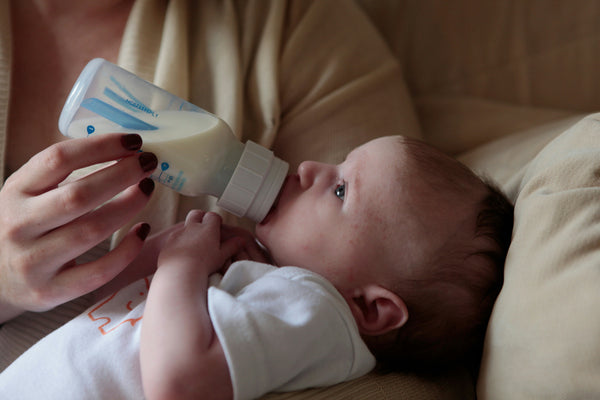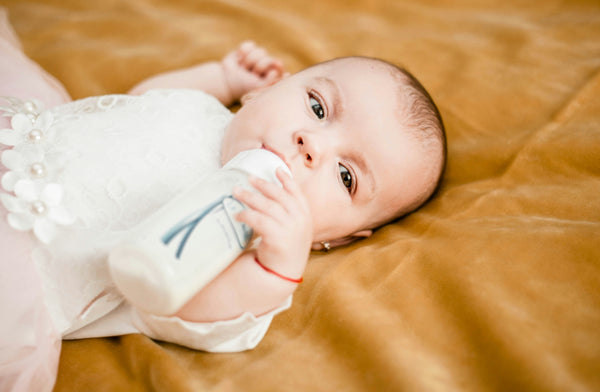10 Tips For Mastering Potty Training
share this article

Mastering potty training can be one of the most anticipated and celebrated milestones for toddlers and preschoolers. The potty training process may include anxiety and frustration at times for both caregivers and children. However, with the right preparation and approach, it can also be a rewarding experience that strengthens the bond between caregivers and children.
Whether you are planning to start potty training in the future or are in the thick of it now, there are some important tips and strategies to consider that will make the process smoother and more successful for everyone involved.
As a potty training coach, I have helped numerous families navigate this developmental stage. Below are the top 10 things to consider when potty training, which have been adapted from the book Toilet Training: The Brazelton Way (2003)[1].
1. Readiness Skills
Each child and family is different, and there is no one-size-fits-all approach to the process. Consider your child’s readiness skills, such as showing interest in the bathroom, following simple (one- and two-step) directions, shows interest in what others do in the bathroom, and being uncomfortable in a wet diaper. Waiting for your child to be ready, and ensuring YOU are ready will allow each of you to approach the process with confidence and ease.
2. Prepare your home
Having the right equipment, such as a child-sized potty chair or a toilet seat insert and stool for the toilet will make a big difference in your child’s comfort and confidence while sitting. Offering choice, such as letting them pick out their potty chair or toilet seat, and even allowing them to decorate it with stickers may help your child feel more motivated and involved in the process. Additionally, the mental preparation of anticipating accidents, as they are part of the learning process, and that you may be doing extra laundry for a few weeks.
3. Have a consistent routine
I always recommend no big changes that have occurred in the last 6 weeks or will be happening in the next 6 weeks when you start the potty training process. Changes such as moving, birth of a new sibling, starting school, etc., can take time for your child to adjust to. It is helpful to picking a time to introduce potty learning when big changes can be mostly avoided is best. However, I understand that life happens! So, if an unexpected change occurs during the potty process, do your best to maintain other routines in your child’s life and be willing to take a pause from the potty process if needed.
Daily reads to help your little ones lead happier and healthier lives.
Join the
Happy Gut Club
4. Manage constipation
This can be one of the biggest barriers to potty training success. Ensure your child has daily, soft bowel movements before you start the potty learning process. You can support your child’s gut health by ensuring adequate hydration and consuming fruits, vegetable, and fiber-rich foods. Prebiotics, like those offered from Begin Health are another helpful tool.
5. Positive reinforcement
Offering specific praise for your child’s efforts and successes during the process will help your child understand what you expect of them and motivate them to keep trying. Some children may benefit from a small reward paired with praise initially as they get the hang of the skills but be ready to fade those out as your child becomes consistently successful. I like fading to a sticker chart as it can be a strong visual aid to support your child throughout the learning process.
6. Avoid shaming
It can be frustrating when your child has accidents but stay calm and remind your child of where they should go next time is a good way to support their learning. Avoid shaming or embarrassing your child when they have accidents as this will be counterproductive to the learning process.
7. Dress for success
Choose clothing that is easy for your child to pull up and down independently will help them feel empowered during the potty learning process and make it easier for them to get to the toilet quickly.
8. Involve your child
Encourage your child to take ownership of their potty learning journey. Allow them to be involved in the potty process, from choosing their potty chair/insert to picking out their underwear. This can help them feel empowered and motivated to use the potty.
9. Communicate with other caregivers
If your child moves between homes, has other caregivers, or attends daycare, ensure everyone is on the same page with the potty training plan. Offering consistent message and responses (to successes and accidents) will reinforce the potty routine and help your child be successful.
10. Have patience and give yourself grace
Potty training can be a challenging process, and some days are more challenging than others. Going in with a mindset of staying patient and remaining calm will help both you and your child feel more at ease during the process.
Summary
Potty training has a lot of moving parts and is not always straightforward. By considering the tips above, you can set your child up for success on their potty learning journey. Be patient, consistent, and positive in your approach, and celebrate your child’s successes along the way. You’ve got this!
















